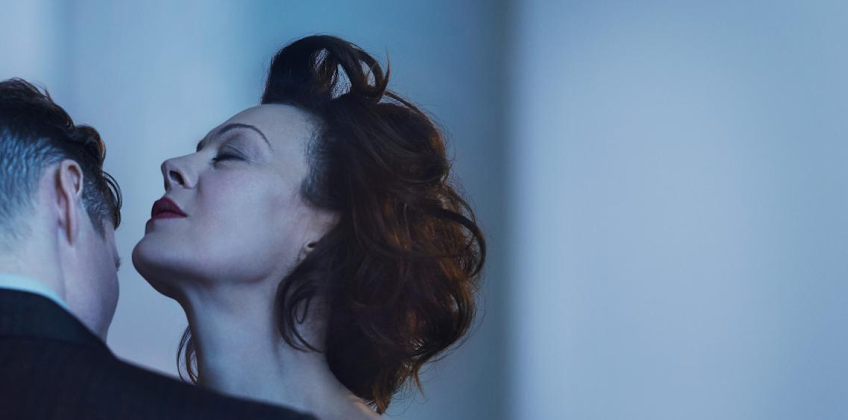Robert Tanitch reviews The Deep Blue Sea at National Theatre/Lyttelton
Terence Rattigan’s The Deep Blue Sea, which many regard as his masterpiece, was triggered by the suicide of his lover, Kenneth Morgan. The play is a disguised dramatization of their relationship.
Homosexuality was illegal in Britain in the 1950s and Rattigan was firmly in the closet. There was no way the play could have been staged in the commercial theatre if the leading characters had been gay.
Hester Collyer is a respectable middle-class woman, a clergyman’s daughter, married to a High Court Judge. She has left her husband for Freddie Page, a much younger and sexier man, a former RAF pilot whose heyday was during the Battle of Britain in 1940.
They live in squalor in unfashionable Ladbroke Grove in a gloomy house which has been converted into flats. The play opens with Hester having failed to commit suicide because she forgot to put sufficient money in the gas meter.
Freddie cannot cope with the demands she makes on him and spends much of his time pub-crawling and on the golf course. He behaves badly not because he is bad but because he is immature and shallow and hopelessly out of his depth.
The role of Hester was created in 1952 by Peggy Ashcroft who made a major contribution to the finished script. The role has attracted many famous actresses since then. Helen McCrory’s understated performance ranks with the very best
 The role of Freddie was created on stage and film (opposite Vivien Leigh) by Kenneth More and his performance remains the definitive one. This is not to diminish Tom Burke in any way. Burke is very good; and that moment when he gives Hester a shilling for the meter, “just in case I’m late for dinner,” can still audibly shock an audience.
The role of Freddie was created on stage and film (opposite Vivien Leigh) by Kenneth More and his performance remains the definitive one. This is not to diminish Tom Burke in any way. Burke is very good; and that moment when he gives Hester a shilling for the meter, “just in case I’m late for dinner,” can still audibly shock an audience.
The play is directed by Carrie Cracknell. Tom Scutt’s set is far too large but then the Lyttelton stage is too large for so intimate a play. Scutt’s solution is put the whole Victorian mansion on stage with transparent walls so you can see the stairwell and the other rooms and the people in them. It’s all a bit too much and distracting.
To learn more about Robert Tanitch and his reviews, click here to go to his website




